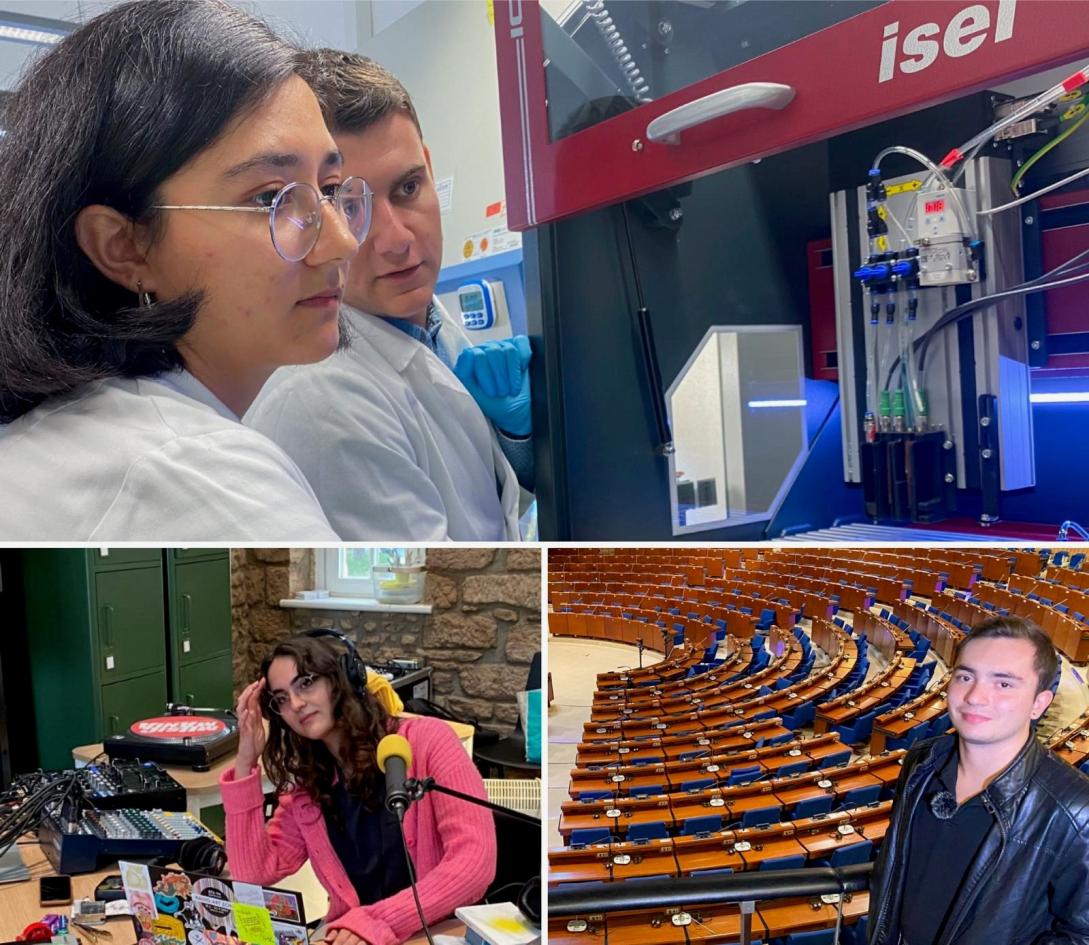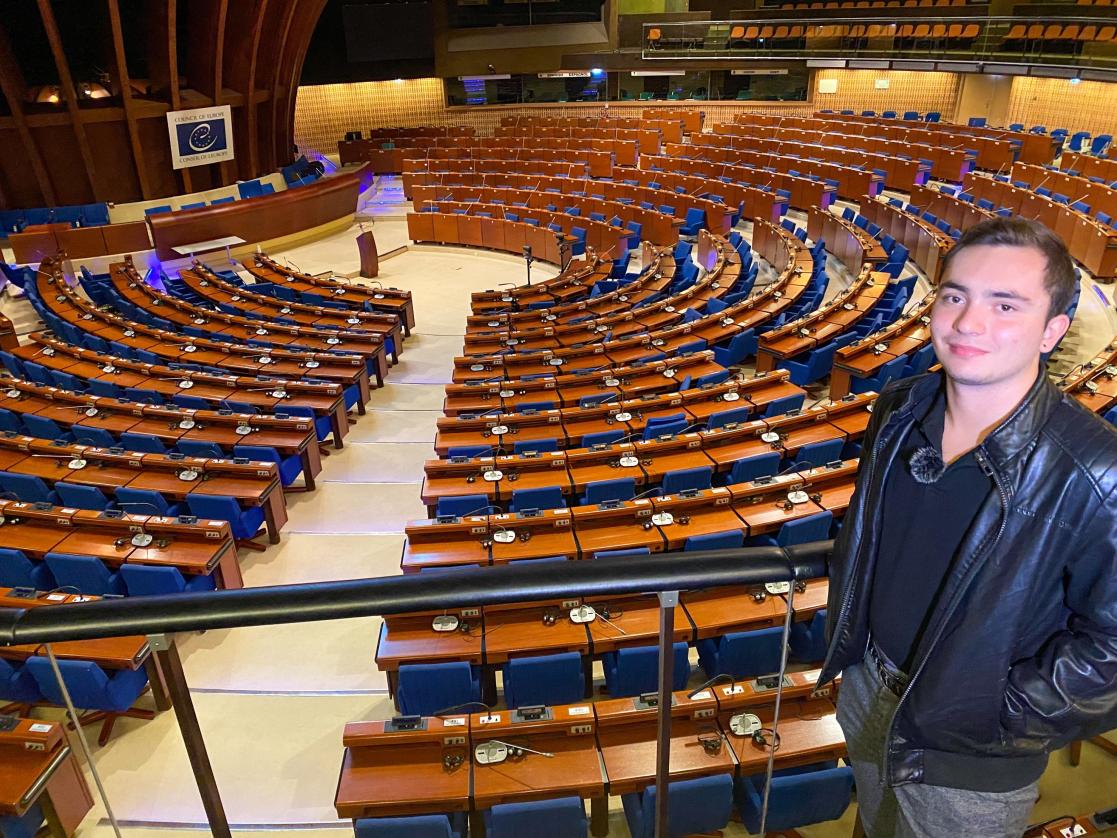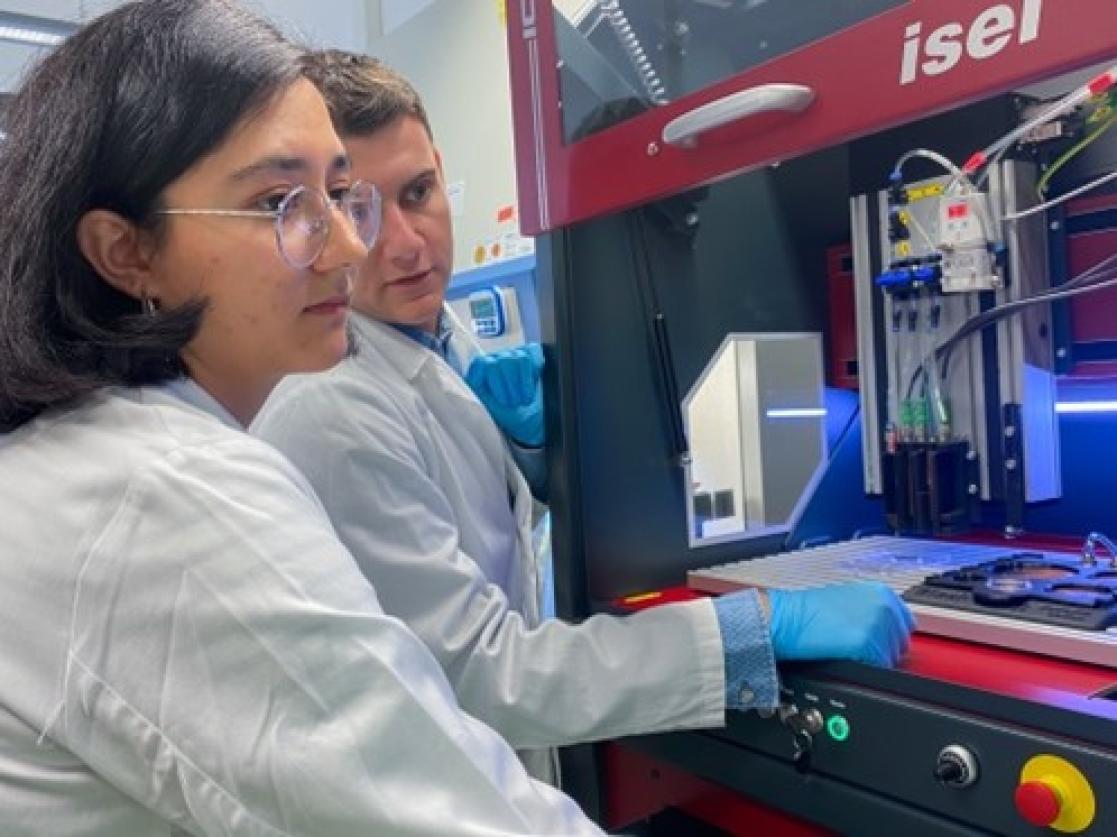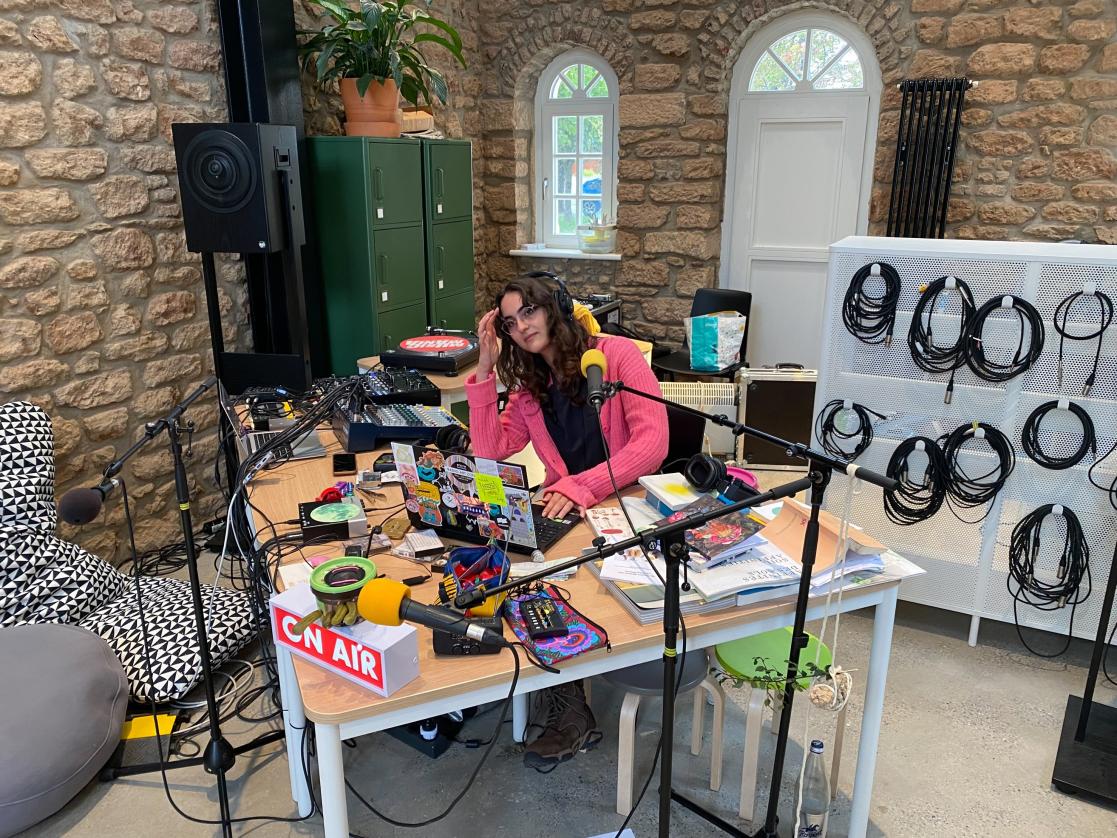Erasmus+ touches young people's lives

"Strasbourg is a special place for me because it was here that the foundations of the Council of Europe and the European Union were laid."
Deniz Hızlı recounts the importance of Strasbourg, the capital of diplomacy, as a political science student. He is one of the many Erasmus+ students established in Strasbourg. He spent a semester at the University of Strasbourg last year. He studies Translation Studies at Yeditepe University, double majoring in Political Science and International Relations, and minoring in Russian Language and Literature.
Deniz explains the advantages of being an Erasmus+ student in this city that hosts institutions such as the Council of Europe, the European Parliament and the European Court of Human Rights: “The lessons were delightful. We analysed and visited European institutions. It is essential for me to master the EU area, and Erasmus has been beneficial in this respect. I feel fortunate.”

Deniz Hızlı
Provides intercultural exchange
Erasmus+ also paves the way for cultural exchange. Students participating in the programme both represent their own cultures in the cities and universities they visit and carry the experience they have acquired there to Türkiye.
"I think it is essential to study in an international environment. People from different countries were in my class; we learnt about different cultures. For instance, I made Turkish coffee for my friends; they had never tried it. We had friends from Latin America, and their cuisine was quite delicious. You get to know each other; you exchange cultures. It is quite fun and enjoyable," says Deniz.
When he graduates, he wants to work in one of the EU institutions. However, unlike many other political science students, he wants to become a conference interpreter who is familiar with EU policies rather than a diplomat.

Yeşim Erdoğan
Participated in artificial organ studies with Erasmus+
Yeşim Erdoğan, a student of Molecular Biology at Gebze Technical University, who happened to pass Heidelberg, where Germany's first university is located, within the scope of Erasmus+, says that she has wanted to travel the world and get to know different cultures since her childhood: "Erasmus was a good opportunity for this."
She interned last semester at the bioprinting laboratory of Heidelberg University, home to 57 Nobel prizes in different fields. Yeşim, who wants to be a scientist, describes those days as follows:
"I went to the lab five days a week. We were working on artificial organs, especially with heart muscle cells. There, I had the chance to use a bioprinter specially designed for that lab and learnt a lot about cell culture and tissue engineering."
Became a radio broadcaster through a volunteering programme
The Erasmus+ programme also includes volunteering projects. Necef Mengüverdi was one of the beneficiaries of these volunteering projects. Necef, who graduated from Izmir Dokuz Eylül University Animation and Cinema Department, says how she applied to the radio project in Esch-sur-Alzette in Luxembourg within the scope of Erasmus+ volunteering projects: "I searched for suitable projects, wrote my motivation letter and applied online. There are no language criteria in volunteering projects. You must only be between 18 and 30 to apply for the programme. There are no other conditions."

Necef Mengüverdi
Necef worked in the social media team of the one-year the "Radio Art Zone" project of the city of Esch-sur-Alzette as part of the 2023 European Capital of Culture and produced a radio programme called "Turkish Wave":
"I introduced Turkish culture in the programme and published Turkish songs. Everyone knew Tarkan there. It was delightful. I had had no experience in radio broadcasting before, but after this experience, I decided to proceed in radio broadcasting."
Increasing the likelihood of a successful career
According to Head of the European Union Delegation to Türkiye Ambassador Nikolaus Meyer-Landrut, “the mobility experience offered by Erasmus+ increases self-reliance and helps young people prepare for successful careers.”
Higher education students who participate in Erasmus+ are twice as likely to find a job within one year of graduation, according to the Turkish National Agency, the programme's national coordinator. More than 80% of Erasmus+ higher education students think that their language skills have improved during their stay abroad. In Türkiye, some 20,000 university students and 10,000 high school students benefit from Erasmus+ in a year (this figure fluctuates from year to year).
Who can benefit from the Erasmus+ programme?
Erasmus+ is the EU grant programme in the fields of education, training, youth and sport. The 2021-2027 programme places a strong focus on social inclusion, the green and digital transitions, and promoting young people’s participation in democratic life. Collaborations between institutions are supported.
Within the scope of the programme, higher education institution students can study for some time at a contracted higher education institution in an EU member country. For this, the student applying for Erasmus+ must complete the first year, achieve the required grade point average, and document their command of the language of education at the university they will attend.
Turkish applicants can apply for Erasmus+ through the Erasmus offices at their universities when the applications are opened. To apply for volunteering programmes, firstly, it is necessary to register on the European Youth Portal, where suitable projects can also be searched.
Photos by Erdem Kırım




